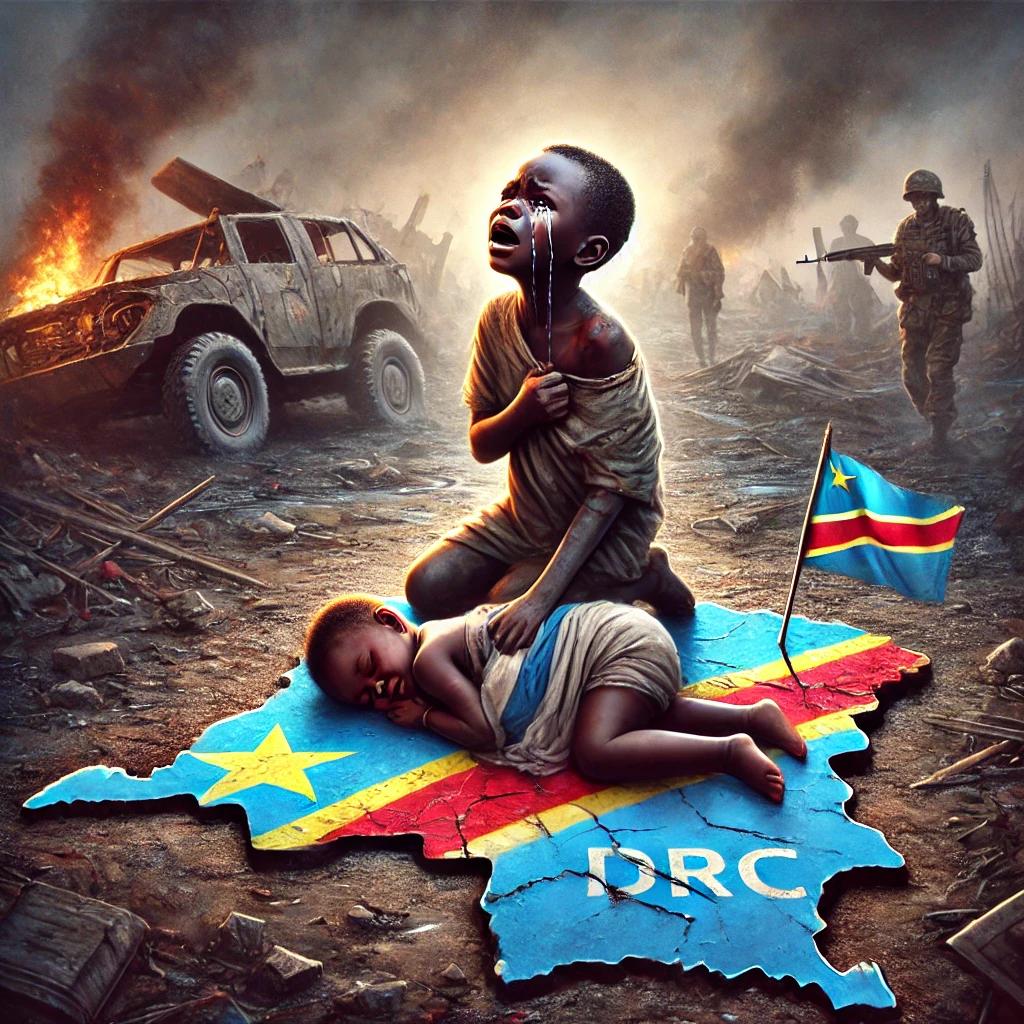
UN Security Council Holds Emergency Briefing on the DRC Conflict
The United Nations Security Council convened an emergency briefing to address the escalating conflict in the Democratic Republic of Congo (DRC), a situation marked by grave humanitarian concerns and violations of international law. As violence surges in the eastern regions, the M23 rebel group, with alleged support from Rwanda, has intensified its offensive, further destabilising the region and threatening millions of lives.
This meeting is significant not only for its urgent tone but also for the dire implications of the unfolding crisis. The discussions underscored the gravity of the deteriorating security environment in the DRC and the urgent need for unified international action.
Background to the Crisis
The roots of the DRC’s conflict lie in decades of political instability, foreign interference, and the presence of numerous armed groups. However, the recent resurgence of the M23 rebel group—a faction initially formed by deserters from the Congolese military—has amplified existing tensions. Since the start of 2025, the M23 has launched large-scale offensives in North Kivu and South Kivu provinces, leading to significant territorial gains and the displacement of thousands.
Critically, the UN briefing highlighted the alleged involvement of Rwanda’s armed forces in supporting M23. According to the UN’s Special Representative to the DRC, this support has emboldened the group to expand its control and launch offensives into previously unaffected areas, including the outskirts of Goma, a strategic city near the Rwandan border.
The violence has triggered widespread displacement, with thousands fleeing their homes to escape the fighting. The situation is further exacerbated by the withdrawal of UN peacekeeping forces (MONUSCO) from certain areas, leaving civilians more vulnerable.
Grave Humanitarian Concerns
The humanitarian toll of the conflict was a focal point of the Security Council briefing. The UN reported a significant rise in civilian casualties, with entire communities caught in the crossfire. Goma, once a haven for internally displaced persons (IDPs), now faces a new wave of panic and flight as M23 forces advance towards the city.
Reports indicate that roads are blocked, the airport is non-operational, and humanitarian workers are unable to deliver critical aid. MONUSCO’s Special Representative, Bintou Keita, described the scene as “chaos,” noting that Goma’s airspace had been declared closed by M23 forces, effectively trapping thousands of civilians and aid workers.
The briefing revealed chilling statistics: in just 48 hours, three UN peacekeepers—two South Africans and one Uruguayan—were killed in operations to protect civilians. Eleven more were injured. These losses underscore the escalating risks faced by both civilians and peacekeepers.
The Role of MONUSCO and International Response
MONUSCO, the UN’s stabilisation mission in the DRC, has long faced criticism for its inability to fully protect civilians in a volatile environment. However, its personnel continue to operate under extreme conditions. The mission has reinforced blocking positions near Goma and deployed rapid-response units to prevent further advances by M23.
Despite these efforts, MONUSCO’s ability to operate has been hindered by GPS jamming and targeted misinformation campaigns. The briefing revealed that hate speech and threats have been directed at senior UN officials, including threats of sexual violence against MONUSCO’s spokesperson.
The Security Council was urged to send a clear message of condemnation to M23 and its alleged backers. As one official noted, “The threats against Blue Helmets and civilian personnel of the United Nations can represent war crimes.”
Call for Political Solutions
While military efforts to counter M23 remain crucial, the briefing emphasised the need for political dialogue. Both the Luanda Process and the Nairobi Process, regional frameworks aimed at fostering peace, were highlighted as essential platforms for resolving the conflict.
Special Representative Keita called on Rwanda to withdraw its forces from Congolese territory and cease its support for M23. Simultaneously, the DRC was urged to take decisive action against the FDLR (Democratic Forces for the Liberation of Rwanda), a Hutu rebel group accused of exacerbating the region’s instability.
The role of international actors, particularly Angola, was also underscored. As Angola prepares to assume the presidency of the African Union, it is expected to play a pivotal role in facilitating peace efforts.
The Human Face of the Crisis
Beyond the statistics and diplomatic statements, the DRC’s crisis is a profoundly human tragedy. Civilians are bearing the brunt of the violence, with children orphaned, families displaced, and livelihoods destroyed. In one of the most poignant moments of the briefing, a displaced Congolese resident was quoted as saying, “Even the Second World War ended because of dialogue.”
This statement underscores the urgent need for a peaceful resolution. The international community must act decisively to prevent further suffering.
Conclusion: A Call to Action
The Security Council briefing on the DRC conflict was a stark reminder of the complexities and human costs of war. The M23’s advance, coupled with alleged foreign interference, has pushed the region to the brink of disaster.
As UN peacekeepers lay down their lives to protect civilians, the international community faces a moral imperative: to act swiftly and decisively. This means holding perpetrators accountable, imposing targeted sanctions, and supporting peace processes.
It also means addressing the root causes of the conflict, from political instability to economic disenfranchisement. For the millions of Congolese citizens caught in the crossfire, these actions could mean the difference between life and death.
As the world watches, the question remains: will the Security Council rise to the challenge, or will the people of the DRC be left to endure yet another chapter of violence and neglect?
Aric Jabari is the Editorial Director of the Sixteenth Council.



